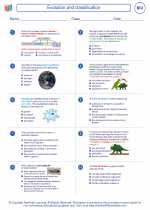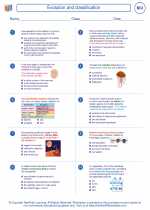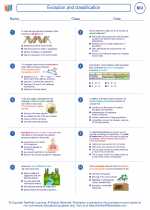Earthquake Explanation and Study Guide
What is an Earthquake?
An earthquake is the shaking of the surface of the Earth resulting from a sudden release of energy in the Earth's lithosphere that creates seismic waves. This release of energy is typically caused by the movement of the Earth's tectonic plates.
Causes of Earthquakes
Earthquakes can be caused by a variety of factors, including:
- Tectonic Plate Movements: Most earthquakes occur as a result of the movement of the Earth's tectonic plates. When these plates move, they can cause stress to build up in the Earth's crust, leading to an eventual release of energy in the form of an earthquake.
- Volcanic Activity: Earthquakes can also be caused by volcanic activity, such as the movement of magma beneath the Earth's surface.
- Human Activities: Some earthquakes can be triggered by human activities, such as mining, reservoir-induced seismicity, or the injection or extraction of fluids into the Earth's crust.
Effects of Earthquakes
Earthquakes can have a wide range of effects, including:
- Ground Shaking: The most noticeable effect of an earthquake is the shaking of the ground, which can cause buildings and other structures to collapse.
- Landslides: Earthquakes can trigger landslides, particularly in mountainous regions with unstable slopes.
- Tsunamis: Underwater earthquakes can generate tsunamis, which are large ocean waves that can cause widespread destruction along coastlines.
- Structural Damage: Earthquakes can cause damage to infrastructure, including roads, bridges, and utilities, leading to disruptions in transportation and communication.
Measuring Earthquakes
Earthquakes are measured using a seismometer, which records the vibrations caused by seismic waves. The two main scales for measuring the size of an earthquake are the Richter scale and the moment magnitude scale. These scales take into account the amplitude of seismic waves and the energy released by an earthquake.
Study Guide
Here are some key points to study when learning about earthquakes:
- Understand the causes of earthquakes, including tectonic plate movements, volcanic activity, and human activities.
- Learn about the effects of earthquakes, such as ground shaking, landslides, tsunamis, and structural damage.
- Explore how earthquakes are measured using seismometers and the Richter scale or moment magnitude scale.
- Consider the impact of earthquakes on society and the environment, and the ways in which communities can prepare for and respond to earthquake events.
By understanding these key points, you will have a solid foundation for comprehending the science of earthquakes and their impact on the world.
[Earthquake] Related Worksheets and Study Guides:
.◂Biology Worksheets and Study Guides High School. Evolution and classification

 Worksheet/Answer key
Worksheet/Answer key
 Worksheet/Answer key
Worksheet/Answer key
